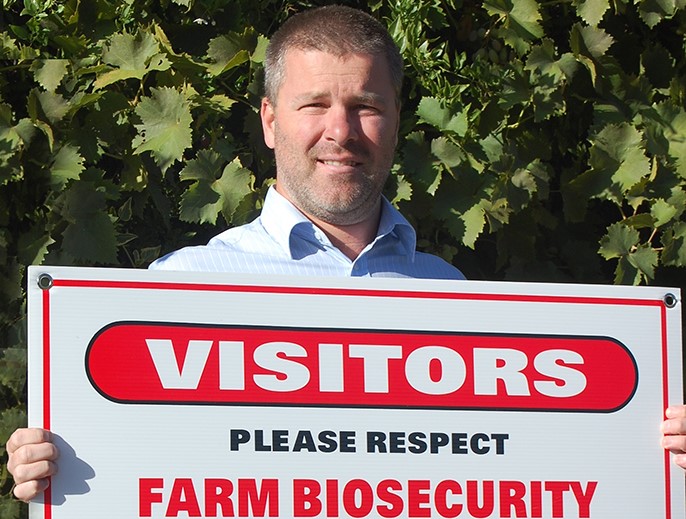
Working closely with growers and others in the grains supply chain, specialist biosecurity officers operate in each of the grain growing regions of New South Wales, Queensland, South Australia, Victoria and Western Australia.
The grains biosecurity officers (GBOs) work with the Grains Farm Biosecurity Program (GFBP), which is Australia’s flagship biosecurity extension program. Launched in 2007, the program is managed by Plant Health Australia (PHA) and funded by growers through Grain Producers Australia and state governments.
PHA manages the national program, which develops key information resources and tools, such as farm gate biosecurity signs, fact sheets, communication products and management guides to assist the officers in raising awareness.
The GBO team works across three main areas:
Surveillance is an important tool for early detection of pests and diseases. Growers and advisers can greatly increase our chances of early detection through crop monitoring and reporting unusual pests and diseases. GBO surveillance activities and increasing levels of industry reporting help maintain access to world markets for Australian grain exports.
The GBOs play an essential role in raising awareness of the industry’s main exotic pest threats. They work with industry to improve farm hygiene practices that minimise the risk of disease and pest entry and spread on farms.
GBOs target surveillance for specific pests by using tools such as pheromone traps, monitoring and inspecting stored grain, and following up on community information received through the Exotic Plant Pest (EPP) Hotline. These tactics encourage growers to closely inspect their crops and report any changes or new pests and diseases to the EPP hotline.
On a day-to-day basis, the GBOs attend field days, industry events, meetings and workshops, where they connect with growers, agronomists and government colleagues, such as Local Land Services officers. They provide training on surveillance techniques, how to identify pests, how to send samples for suspect exotic pests and they share information about managing and reducing risks at farm level.
Since the program’s inception, the GBOs have distributed thousands of farm biosecurity signs and helped growers to set up their daily activities in a way that protects their business and the industry.
Establishing good biosecurity practices on-farm is not only good for individual businesses but it also adds another layer of protection to Australia’s world-class biosecurity system.
If you spot anything unusual or find something you are not sure about, call the EPP Hotline on 1800 084 881.
More information: Contact one of the grains biosecurity officers in your region for more information on how to implement farm biosecurity practices on your property.
Visit the Grains Farm Biosecurity website for more information, latest news and helpful resources about grains farm biosecurity.
* The original article was published in the Groundcover Supplement: Biosecurity – A Shared Responsibility, September-October 2022